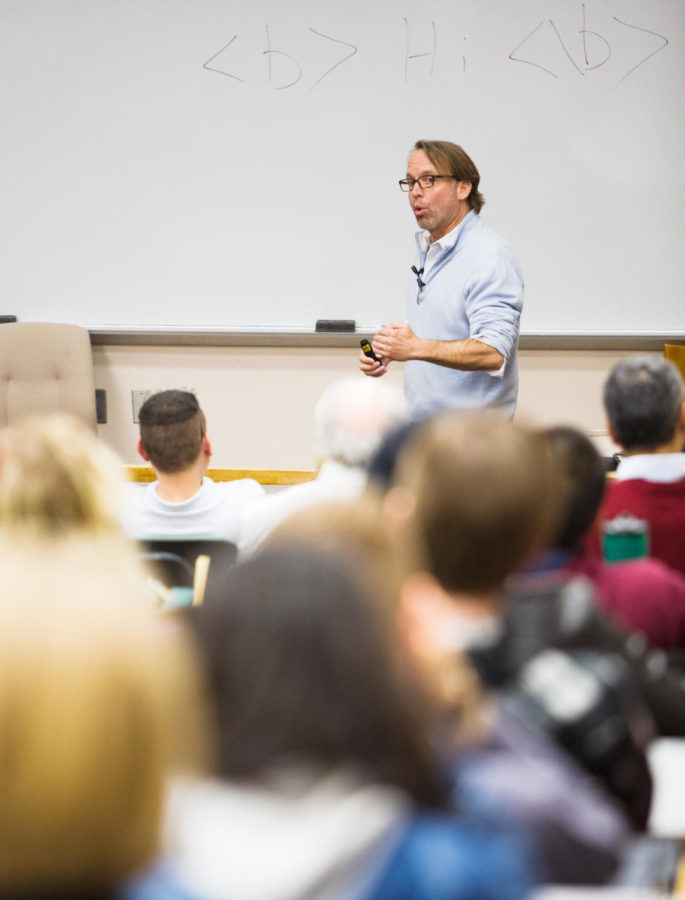Dr. Matthew Lange discusses ways to build ‘The Internet of Food’ in lecture
Food researcher at UC Davis Matthew Lange speaks to an assembly of Iowa State students on the importance of an emerging “Internet of Food”. Stemming off of the concept of an “Internet of Things” which referrs to the increasing number of interconnected sensors that cover our world today, Lange hopes that the food industry can evolve to be more transparent and more efficient with this technology.
April 11, 2018
Dr. Matthew Lange presented his ideas for connecting food, health semantics and technology on Wednesday afternoon. His lecture “Internet of Food” is part of the 2017-2018 Helen Lebaron Hilton Endowed Chair lecture series.
Lange is head of I-C Foods, a research initiative based at the University of California, Davis. The goal of his project is to build an infrastructure platform to create an “Internet of Food.”
This goal is not to build a website or a reference guide, but an actual internet where eating, drinking and pleasure are digitized by connecting and categorizing vocabulary across topics.
“It’s not a website, it’s not a database, it’s an Internet,” Lange said.
This Internet of Food, or IoF, aims to connect environmental issues, agriculture, food, diet and health all together.
“There’s no reason we should all be using different languages to be talking about food,” Lange said. “That’s what the semantic web of food is all about, it’s harmonizing those things.”
Over half of the top ten killers worldwide involve inappropriate food consumption, Lange said. Despite the impact food has on health and the enviornment, there is no real digitized comprehensive framework for food like there is for diseases.
“Our biggest impact on the environment is related to food, our biggest impact on our health is related to food,” Lange said. “Yet we don’t really have a knowledge infrastructure over food in the same way that we do for drugs and diseases.”
Not only will this help personalize food products and encourage sustainability, but this Internet will help predict food taste and sensation.
“Let’s stop recreating the wheel and make computable vocabularies about flavor so we can predict what flavors will result,” Lange said.
In order for this project to succeed, Lange said that companies need to share data instead of hide it. Being transparent and sharing results is the only way to be comprehensive and reduce unnecessary competition.
“Let’s just compare data,” Lange said. “if you’re afraid to compare, you probably need to change and you’re going to get outcompeted. Let’s build the competition around doing the right thing.”







